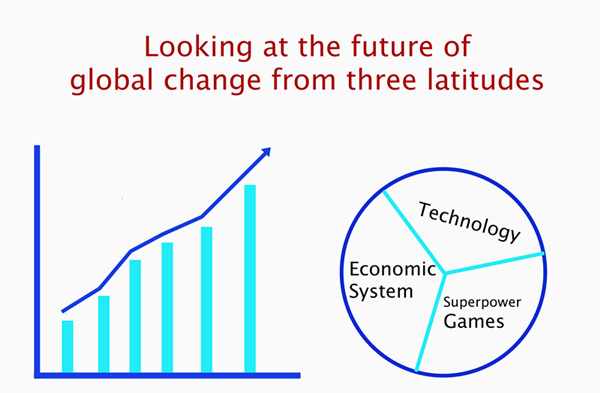Viewing the Future Global Changes through Three Perspectives
Aug 16,2018

By Long Guoqiang, DRC
2018-6-20
The global trade frictions provoked by the U.S. are surging on, bringing about assorted uncertainties and volatilities unprecedented in the world landscape.
Firstly, the new round of technological revolution has rippled across the global pattern. Every major technological breakthrough, in light of human civilization history, would impose a profound impact on the world performance. Apart from IT, many technological breakthroughs have influenced the world advance. The progress in the shale gas and shale oil technology in America is going to make the country become a crucial oil and gas exporter. Moreover new energy-driven vehicles are booming up and will affect the demand for traditional energy. As the world is entering a new era in terms of the energy production revolution, the demand revolution and institutional revolution, the global energy geopolitical pattern is expressing some changes. IT advances should be attached with great significance. The Information Technology today is no longer a mere substitute of human labor, but a replacement of human mind and an extension of human intelligence. The hi-tech progress, especially that of IT, will refine and deepen global labor division, which requires freer, opener and easier global rules to adapt to the inherent requirements posed by productivity in the global pattern.
Secondly, the global economic governance system is being challenged. The global economic governance system, whose establishment was dominated by the U.S., is now faced with challenges from the country itself. It was in the wake of the last round globalization being interrupted and on the basis of reflection over the trade policies during the Great Depression as well as the Second World War when the current system was founded. The system has met whatever needs of globalization in the past 70 years. But today in a decade after the outbreak of the 2008 international financial crisis, the U.S. has adopted unilateral trade measures and made a series of “contract breaches”, which have brought about world trade frictions and far-reaching negative effects to globalization. The current historical juncture is faced with two distinct mindsets and policy options: one hoping to make the world more open and inclusive, and stressing openness, freedom, cooperation and win-win results, while the other is the manifestation of unilateralism and protectionism. In retrospect of the history you will notice globalization has never progressed smoothly, sometimes even being suspended. But globalization is an irreversible process in the long term.
Thirdly, the game of big powers needs rules. Since the Age of Exploration, the global landscape shifts have proved to be a process of game between big powers. Great powers have bigger influence to global trends in the future, which endows more world responsibilities on these countries and requires them not only to serve for themselves but also combine their own interests with the benefits of mankind and the world at large. Now in the game of great powers, there is on the one hand the advocate of no confrontation or conflict, equal cooperation and mutual benefit, and on the other hand the action of “zero-sum game”, suppression and containment, known as the “Thucydides trap”. In the global landscape changes, different concepts and policy options bring diverged results in the game of great powers. Thus it is hoped that all countries should uphold equal competition and cooperation on the basis of multilateral rules so as to lead the world people toward a new prosperity.














